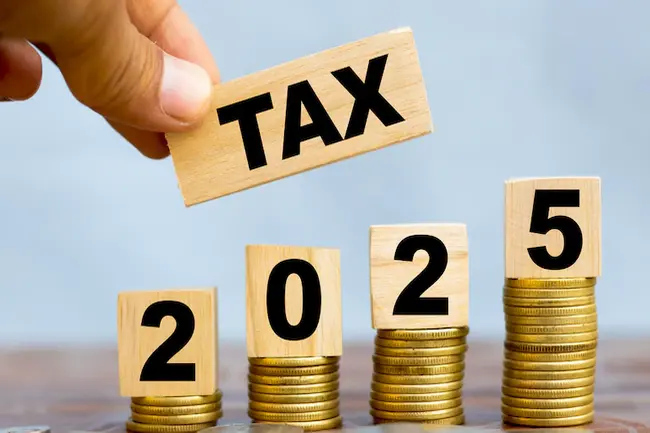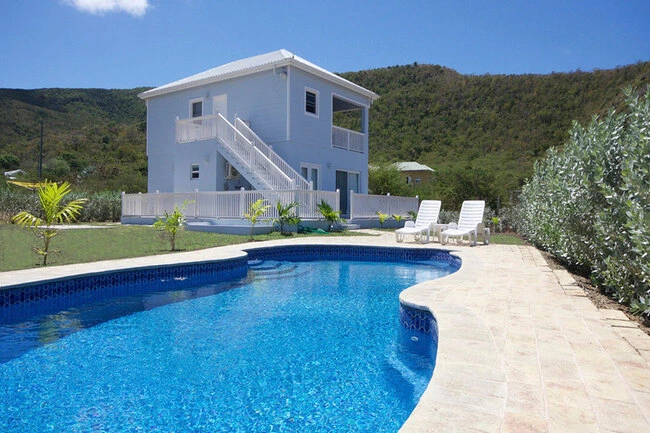- Antigua and Barbuda tax system in 2025
- Antigua and Barbuda Tax System Overview | Tax Benefits for Investors in Antigua and Barbuda
- Corporate Income Tax (CT)
- Withholding Tax
- Antigua and Barbuda Sales Tax (ABST)
- Social Security Contributions
- Property Taxes (PT)
- Final Thought: Taxation for Investors in Antigua and Barbuda
Antigua and Barbuda is a twin-island nation located in the Eastern Caribbean, known for its 365 pristine beaches, tropical climate, and stable economy. Tourism is the backbone of the country, contributing nearly 60% of its GDP, followed by real estate, construction, and light manufacturing. The islands attract global investors not only for their luxury lifestyle and favorable business environment but also for their strong political stability and tax-friendly system with no capital gains or inheritance tax.

Antigua and Barbuda is globally recognized for its Citizenship by Investment (CBI) Programme, established in 2013 and regulated by the Citizenship by Investment Unit (CIU). Through this program, qualified investors and their families can obtain citizenship by making a government-approved investment in one of four options: a contribution to the National Development Fund (NDF), investment in approved real estate projects, a contribution to the University of the West Indies (UWI) Fund, or investment in an approved business. Successful applicants gain full citizenship, including visa-free or visa-on-arrival access to over 153+ countries such as the United Kingdom, Schengen Zone nations, Singapore, and Hong Kong.
Antigua and Barbuda Tax System Overview | Tax Benefits for Investors in Antigua and Barbuda
Antigua and Barbuda offers one of the most investor-friendly tax systems in the Caribbean, making it a preferred destination for global entrepreneurs and high-net-worth individuals. The country does not impose personal income tax, capital gains tax, inheritance tax, or wealth tax, allowing citizens and residents to retain more of their earnings and assets. Instead, government revenue is primarily generated through indirect taxes such as the Antigua and Barbuda Sales Tax (ABST), which is similar to VAT and levied at a standard rate of 15% on most goods and services. Corporate tax applies to local companies on profits earned within Antigua and Barbuda, generally at a rate of 25%
There are also no foreign exchange controls, which enables free movement of capital and international transactions. This transparent and efficient tax regime, combined with the nation’s stable economy and attractive Citizenship by Investment Program, makes Antigua and Barbuda a strategic hub for wealth planning, global business operations, and second citizenship opportunities.
Antigua and Barbuda is also well known for its Citizenship by Investment Program, one of the most trusted programs in the world. By donating to the government fund or investing in approved real estate, and uwi fund, investors can get Antigua and Barbuda citizenship and passport within just a few months which is 6 – 9 months. The passport allows visa-free travel to more than 153+, including the Singapore, South Korea, UK and the Schengen Area. The list of taxes in Antigua and Barbuda is given below:
Antigua and Barbuda does not impose any personal income tax, nor are dividends, royalties, or interest subject to taxation. However, non-residents are required to pay a 12.5% withholding tax on applicable income. Additionally, all employees and employers contribute to the Social Security system.
| Description | Dividends, Royalties or Interest | Social Security Tax Rate |
|---|---|---|
| Resident in Antigua and Barbuda | 0% | 6.5% private employees and 8.5% private sector employers in addition, 5.5% public sector employees and 8.5% public sector employers |
| Non Resident in Antigua and Barbuda | 12.5% need to pay withholding tax | None |
Previously, employees and employers in Antigua and Barbuda contributed 5.5% of gross salary each to the Social Security system. However, the rates have now been updated: employees contribute 6.5% and employers contribute 8.5%, reflecting the most current statutory requirements. This adjustment ensures the Social Security Fund remains sustainable while continuing to provide benefits such as pensions, sickness benefits, and maternity support for workers in the country.
Who is Resident in Antigua and Barbuda ?
A resident is generally someone who lives in Antigua and Barbuda and is present in the country for tax or legal purposes. Residency is often determined by physical presence, usually spending a minimum number of days in the country (for tax purposes, it can be 183 days( 6 months approximately ) in a year, but this depends on context. Residents are subject to local tax rules on income generated in the country, though Antigua and Barbuda does not levy personal income tax.
Who is Non-Resident Employees ?
Non-residents (people who do not live in Antigua and Barbuda) generally do not contribute to the Social Security system, unless they are formally employed in Antigua and Barbuda. Instead, non-residents are subject to a 12.5% withholding tax on Antigua-sourced income such as dividends, interest, royalties, and technical service fees.

Who is a CBI citizen? Does a citizen who obtains citizenship through the CBI program also consider as a regular resident in Antigua and Barbuda?
Antigua and Barbuda’s Citizenship by Investment (CBI) program does not require full-time residency. To maintain citizenship, applicants need to be physically present in the country for only 5 days within the first 5 years. If you obtain citizenship through the Citizenship by Investment (CBI) program, you are not automatically a tax or Social Security resident.
Citizenship only gives you legal nationality; unless you physically live or work in Antigua and Barbuda, you are treated as a non-resident for tax and Social Security purposes. Most CBI applicants spend only the minimum five days in five years required to maintain citizenship.
Please note that if you obtaining CBI citizenship alone does not make you a tax resident. You are legally a citizen, but tax residency depends on physical presence in the country with valid local address.
Corporate Income Tax (CT)
In Antigua and Barbuda, corporate income tax is levied on companies that earn profits within the country. The standard tax rate for local companies is 25% on net profits. Offshore companies or those conducting business primarily outside Antigua and Barbuda may benefit from tax exemptions or reduced rates under special regimes, making the jurisdiction attractive for international business and investment. While personal income tax does not exist, corporate income tax ensures that locally operating businesses contribute to the government’s revenue. This system, combined with other incentives such as no capital gains, inheritance, or wealth tax, provides a business-friendly environment for both residents and foreign investors.
However, certain sectors and types of companies are eligible for reduced rates: banks offering low-interest mortgages may pay 22.5%, while companies in industries such as insurance, oil, telecommunications, and energy can qualify for a 10% rate under special incentives. This tiered system ensures that while the majority of businesses contribute uniformly to government revenue, strategic sectors benefiting the economy can enjoy lower tax burdens.
Withholding Tax
In Antigua and Barbuda, withholding tax applies primarily to non-residents who receive income sourced from the country. This includes payments such as dividends, interest, royalties, management fees, and technical service fees. The standard withholding tax rate is 12.5%, which is deducted at the source by the paying entity before the income is transferred to the non-resident. Residents or employees working locally are generally not subject to withholding tax on their income, as the country does not impose personal income tax.
Antigua and Barbuda Sales Tax (ABST)
The Antigua and Barbuda Sales Tax (ABST) is a value-added tax applied to most goods and services in the country. The standard rate is 15%, while certain goods and services, particularly in the tourism and hospitality sectors, are taxed at a reduced rate of 12%. Some essential items, such as basic food, medical services, and exports, are exempt or zero-rated. The ABST system ensures a reliable revenue stream for the government while maintaining transparency and simplicity for businesses and consumers. This indirect tax complements other taxes like corporate income tax and withholding tax, contributing to a stable and investor-friendly fiscal environment in Antigua and Barbuda.

How VAT Works in Antigua and Barbuda ?
Businesses operating in Antigua and Barbuda that supply taxable goods or services must register for the Antigua and Barbuda Sales Tax (ABST) with the Inland Revenue Department (IRD). Once registered, businesses are required to charge ABST on all taxable sales at the standard rate of 15% (or 12% for certain tourism-related services).
Collected ABST must be remitted to the IRD on a monthly basis, using the official ABST return forms. Businesses can also claim credits for ABST paid on their business purchases, reducing the amount owed to the government. Payments can usually be made online through the IRD portal, by bank transfer, or in person at IRD offices. Failure to register, charge, or remit ABST can result in penalties and interest. This system ensures that VAT is collected efficiently at each stage of business transactions, while allowing businesses to remain compliant and avoid double taxation.
Social Security Contributions
In Antigua and Barbuda, all employees and employers working in the country are required to contribute to the Social Security system, which funds benefits such as pensions, sickness allowances, and maternity support. Private sector employees contribute 6.5% of their gross salary, while private sector employers contribute 8.5%. For the public sector, employees contribute 5.5%, and employers contribute 8.5%. Non-residents who do not work in Antigua and Barbuda are not required to contribute. Social Security contributions are collected regularly by the Social Security Board, ensuring financial protection and social welfare for workers throughout the country.
Property Taxes (PT)
In Antigua and Barbuda, property taxes are levied annually on the market value of land and buildings, with rates typically ranging from 0.1% to 0.5%, depending on property type and location. Property owners must register their properties with the Inland Revenue Department and pay taxes based on the assessed value. For investors participating in the Citizenship by Investment (CBI) program, purchasing approved real estate is a popular pathway to citizenship. These CBI properties are also subject to property taxes, but the rates remain relatively low, making such investments both a strategic route to citizenship and a financially attractive real estate opportunity in Antigua and Barbuda.


Final Thought: Taxation for Investors in Antigua and Barbuda
Antigua and Barbuda offers investors a highly favorable tax environment with no personal income tax, low property taxes, competitive corporate rates, and minimal Social Security obligations. Non-resident investors benefit from a simple 12.5% withholding tax on Antigua-sourced income, while CBI property investors enjoy strategic real estate opportunities with relatively low annual taxes. This transparent and efficient tax framework, combined with the CBI program and global travel advantages, makes Antigua and Barbuda an ideal destination for investors seeking financial efficiency, wealth protection, and global mobility.
Investors, including those participating in the Citizenship by Investment (CBI) program, enjoy a very favorable tax environment in Antigua and Barbuda:
Because Antigua and Barbuda allows dual citizenship, you can keep your original passport while enjoying the benefits of the Antigua and Barbuda passport, including visa-free travel to numerous countries and a favorable tax regime.



